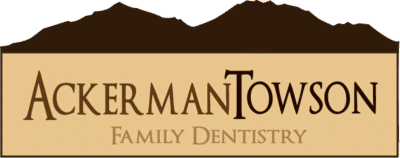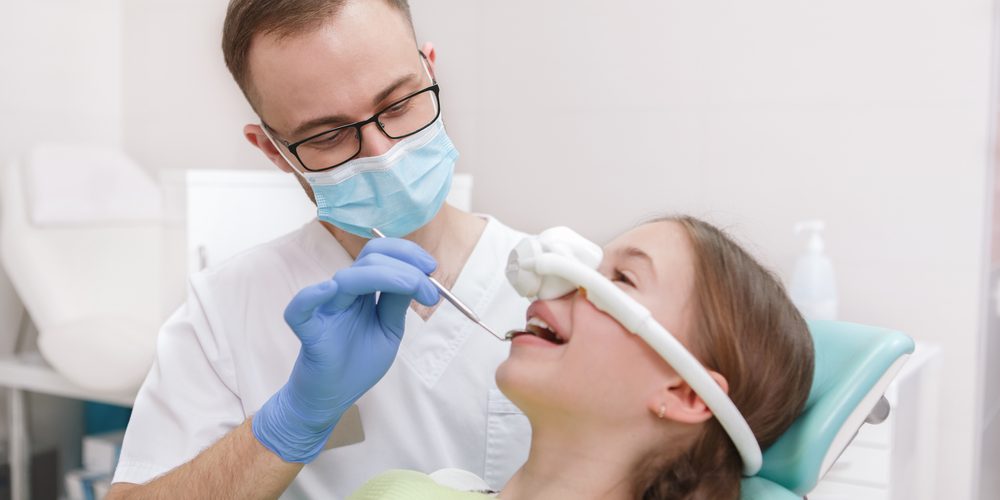People frequently choose what is commonly referred to as sleep dentistry when they are afraid of discomfort or of going to the dentist in general. Sleep dentistry is made feasible by various dental sedative techniques. However, not all of them induce sleep. Sedation dentistry comes in a variety of forms. To establish which sort of sedation dentistry in Brentwood will work best for you, we will examine several criteria during your visit to Ackerman & Towson Dentistry, including your medical history and oral health requirements.
What is Sedation Dentistry?
The goal of sedation dentistry is to reduce anxiety and pain. While sedation helps patients overcome their fears and phobias related to visiting the dentist, there is also a clinical purpose.
Sedation may be the best method to ease into dental care for those with limited pain tolerance. Sedation dentistry is also advantageous for patients with extremely sensitive teeth or a strong gag reflex.
Patients occasionally struggle to stay seated on the chair due to high energy, anxiety, or short attention spans. For these individuals as well, dentists frequently use sedation. It may be in a patient’s best interest to speak with Dr. Ackerman or Dr. Towson if they need extensive dental work.
The Different Categories of Sedation
Sedation can be split into two different categories: conscious and unconscious sedation.
- Conscious: Conscious dental sedation is a type of dentistry where the patient is conscious but sedated during the procedure. We use a minimal amount of anesthetic to achieve the desired result. The purpose of this type of dentistry is to help the patient feel more relaxed and comfortable during their procedure and to help them avoid any potential pain or discomfort. There are various types of conscious sedation dentistry; their specific needs and preferences will determine the best type for each individual.
- Unconscious: Unconscious dental sedation is a type of sedation dentistry that uses medication to help patients relax during dental procedures. The medicine is often administered through an IV, which works to occlude the patient’s central nervous system. This type of sedation is ideal for patients who experience anxiety or fear during dental procedures. It is also beneficial for patients who have difficulty getting numb or require more prolonged or complex treatments. Unconscious dental sedation allows patients to remain awake and breathe independently, but they will be in a deeply relaxed state and unable to remember the procedure. Patients will typically be monitored throughout the process and need someone to drive them home after the sedation has worn off. We do not offer unconscious sedation. If you are interested in unconscious sedation, call and speak to one of our fantastic team members, we can refer you to a trusted oral surgeon who can provide this service for you.
Different Types of Sedation
- Laughing Gas: Laughing gas is a colorless and odorless gas with various uses. Laughing gas sedation is prevalent in dentistry because we can use it as a mild sedative. When inhaled, it produces a feeling of euphoria and relaxation. Laughing gas is mixed with oxygen and inhaled through a mask placed over the nose. The gas works quickly, and most patients feel tired and slightly euphoric within minutes. It is safe for adults and children, and its side effects are typically mild and short-lived.
- Oral Conscious Sedation: Oral-conscious sedation dentistry is a technique that uses medication to help patients relax during dental procedures. The medicine is usually taken in pill form about an hour before the appointment, and it helps to reduce anxiety and minimize discomfort. We often use oral conscious sedation dentistry for patients with dental anxiety or who need to undergo lengthy or complex procedures.
- IV Sedation: IV sedation is a type of dental sedation delivered directly into the bloodstream through an IV (intravenous) line. It is often used for complex dental procedures or for patients who have severe dental anxiety. IV sedation dentistry offers several benefits, including a more profound level of relaxation and a shorter recovery time. However, it also has some drawbacks, such as a higher cost and a greater risk of complications.Most people who receive IV sedation dentistry fall asleep and have little to no memory of their treatment when they wake up. Overall, IV sedation can be an effective way to reduce anxiety and make dental procedures more comfortable. Our office does not provide this type of sedation.
Sedation Dentistry in Brentwood, Ca
Avoid experiencing dental anxiety. And don’t let fear keep you from receiving the oral healthcare you need. Ask Drs. Ackerman and Towson about sedation dentistry in Brentwood if you are afraid about going to the dentist.
Please get in touch with Ackerman & Towson Dentistry for additional details on sedation dentistry and schedule an appointment with one of our dentists.







